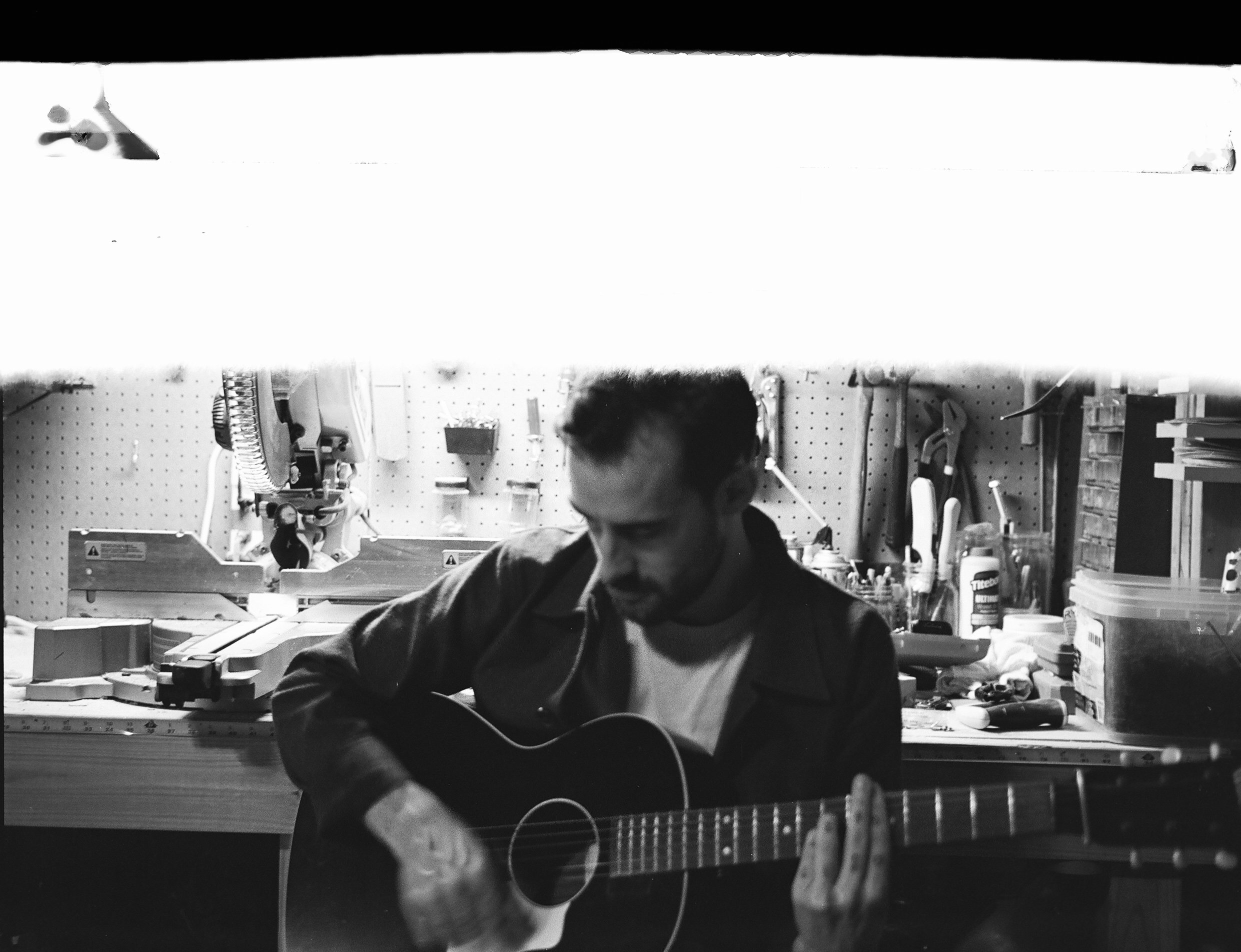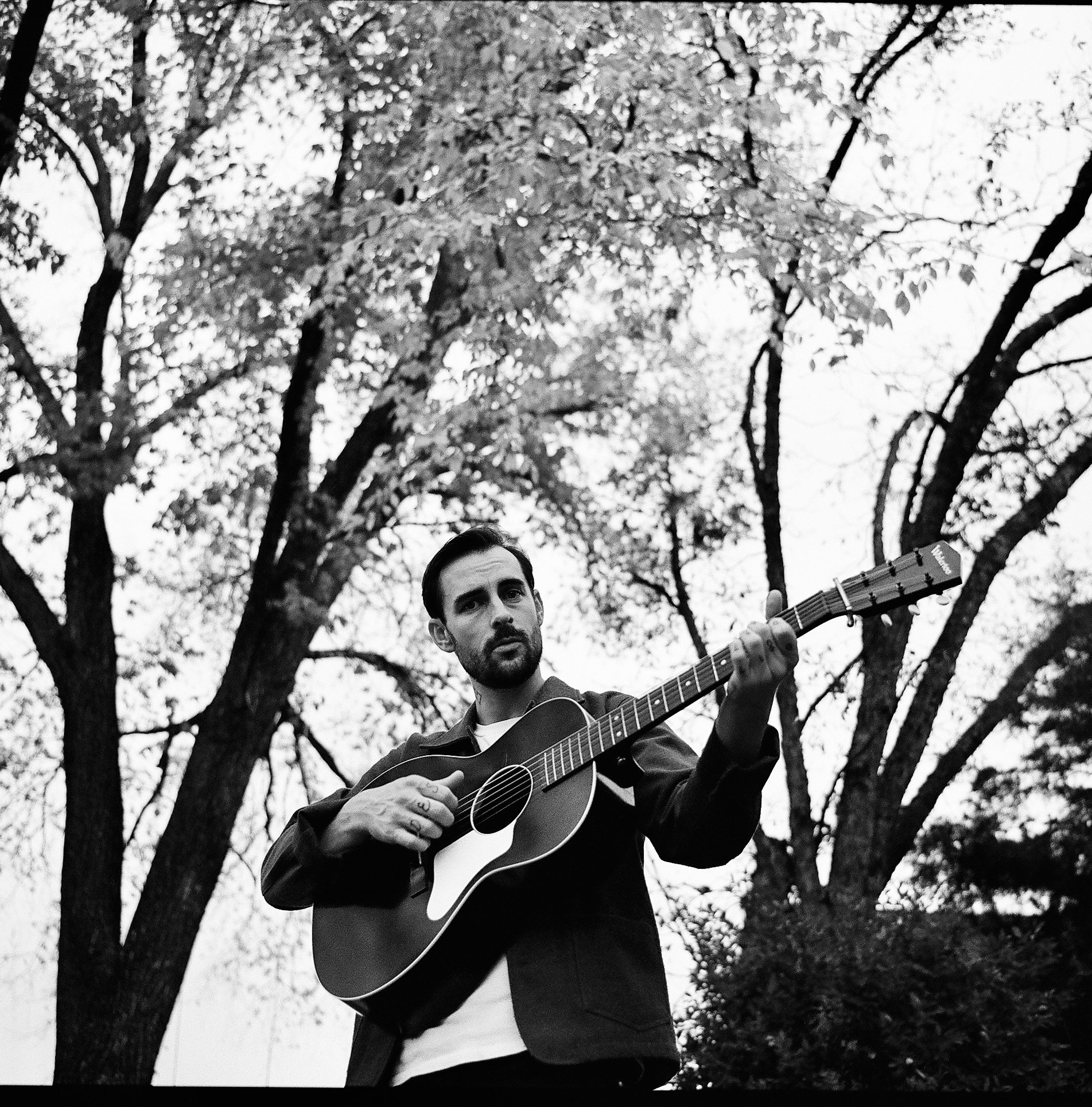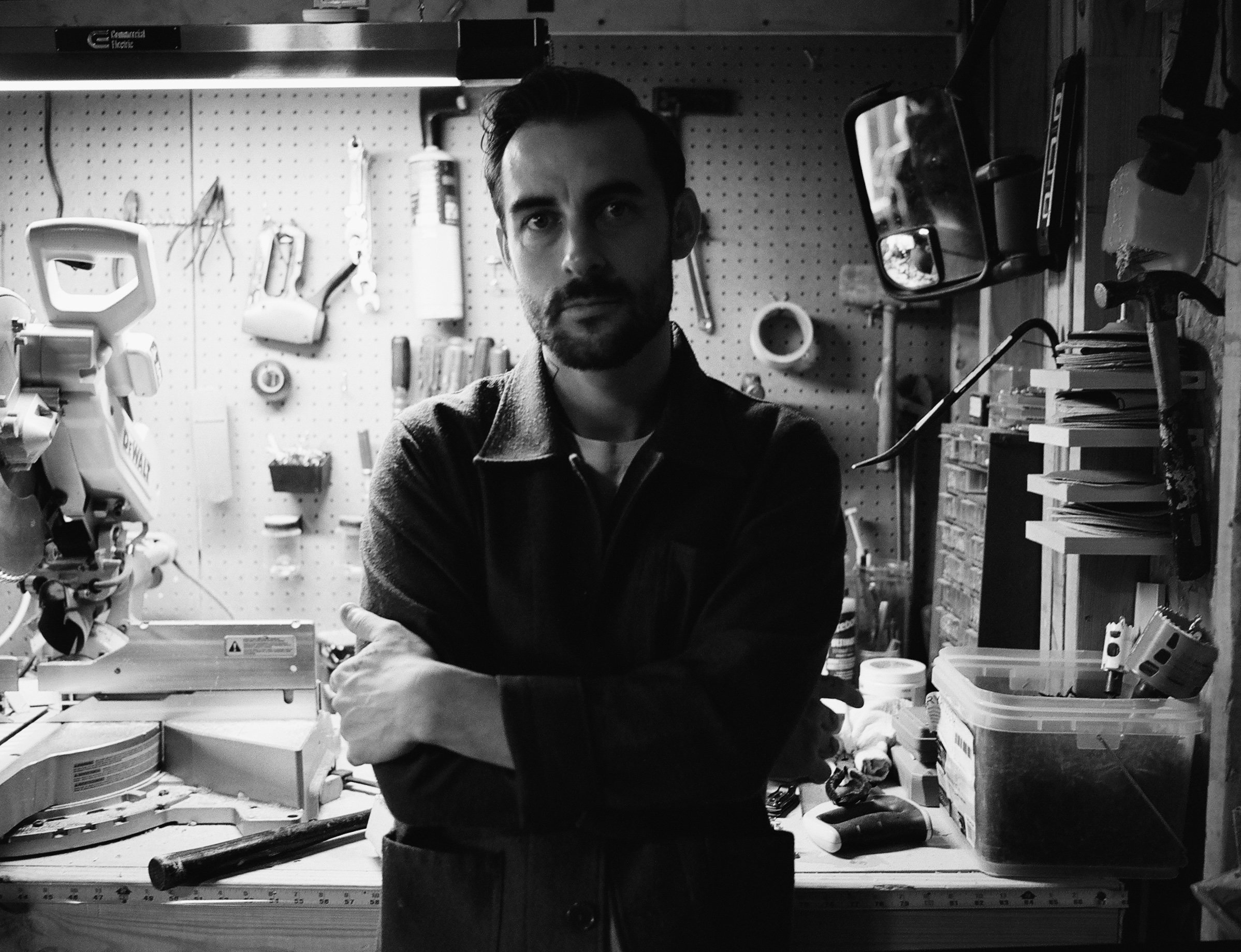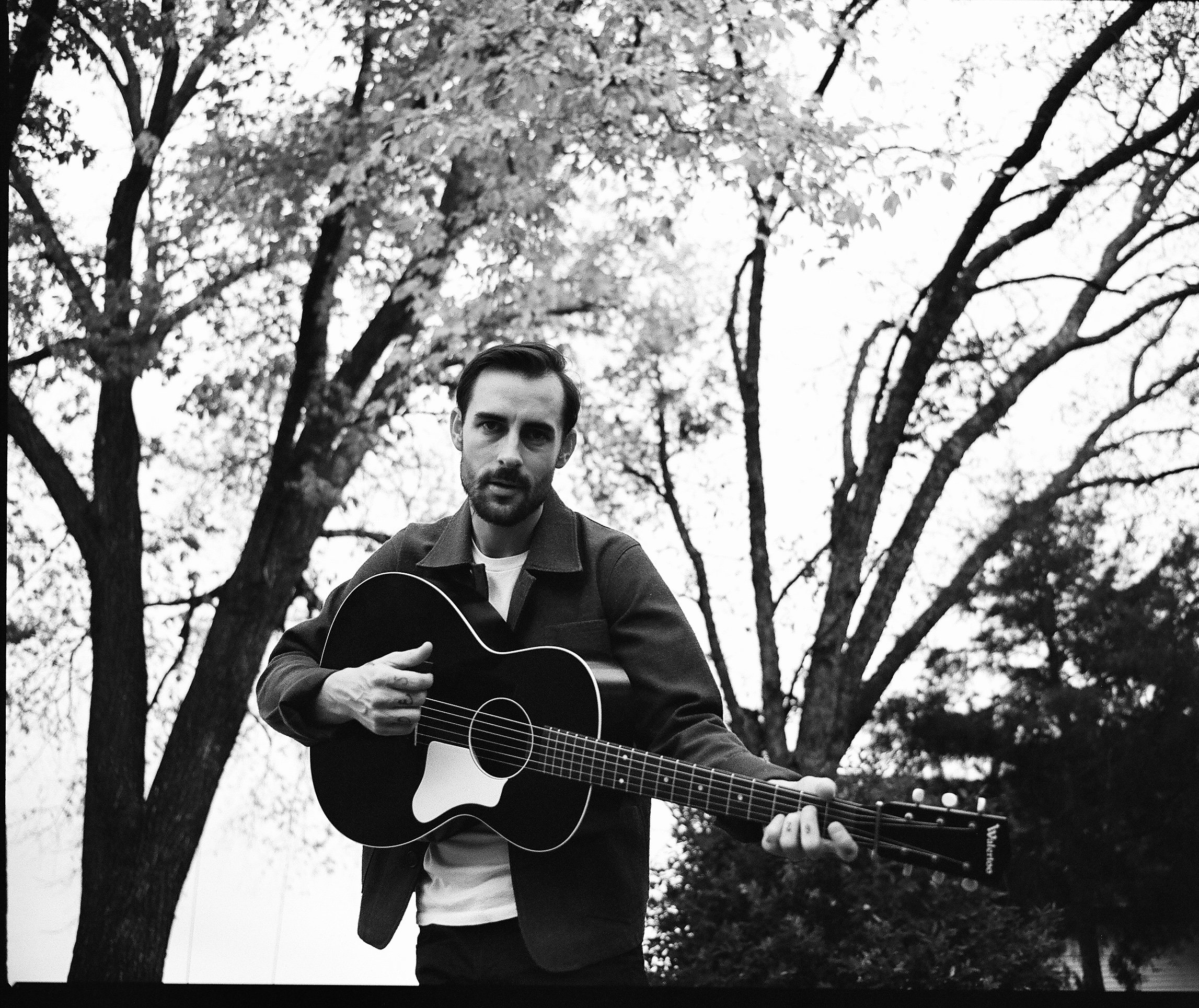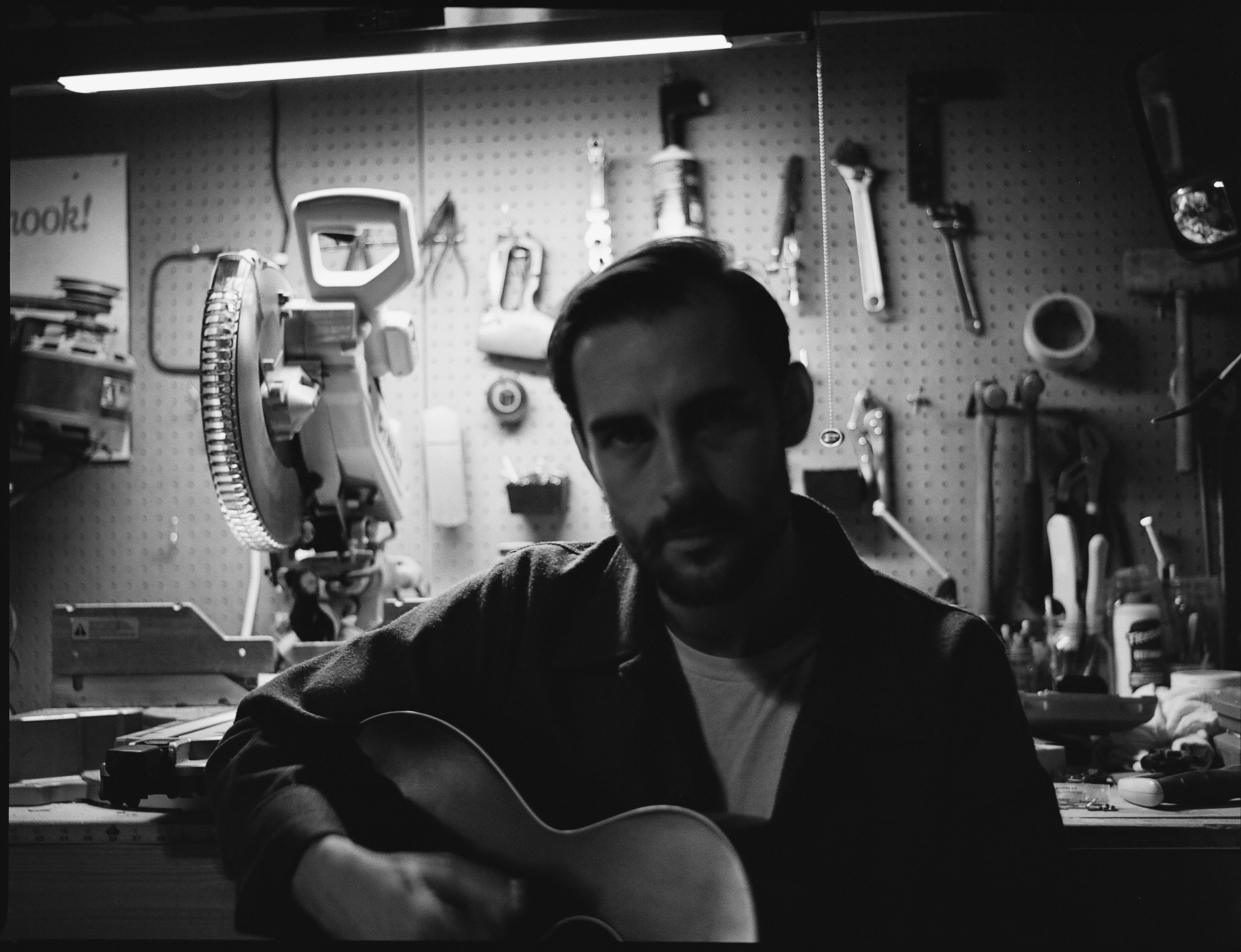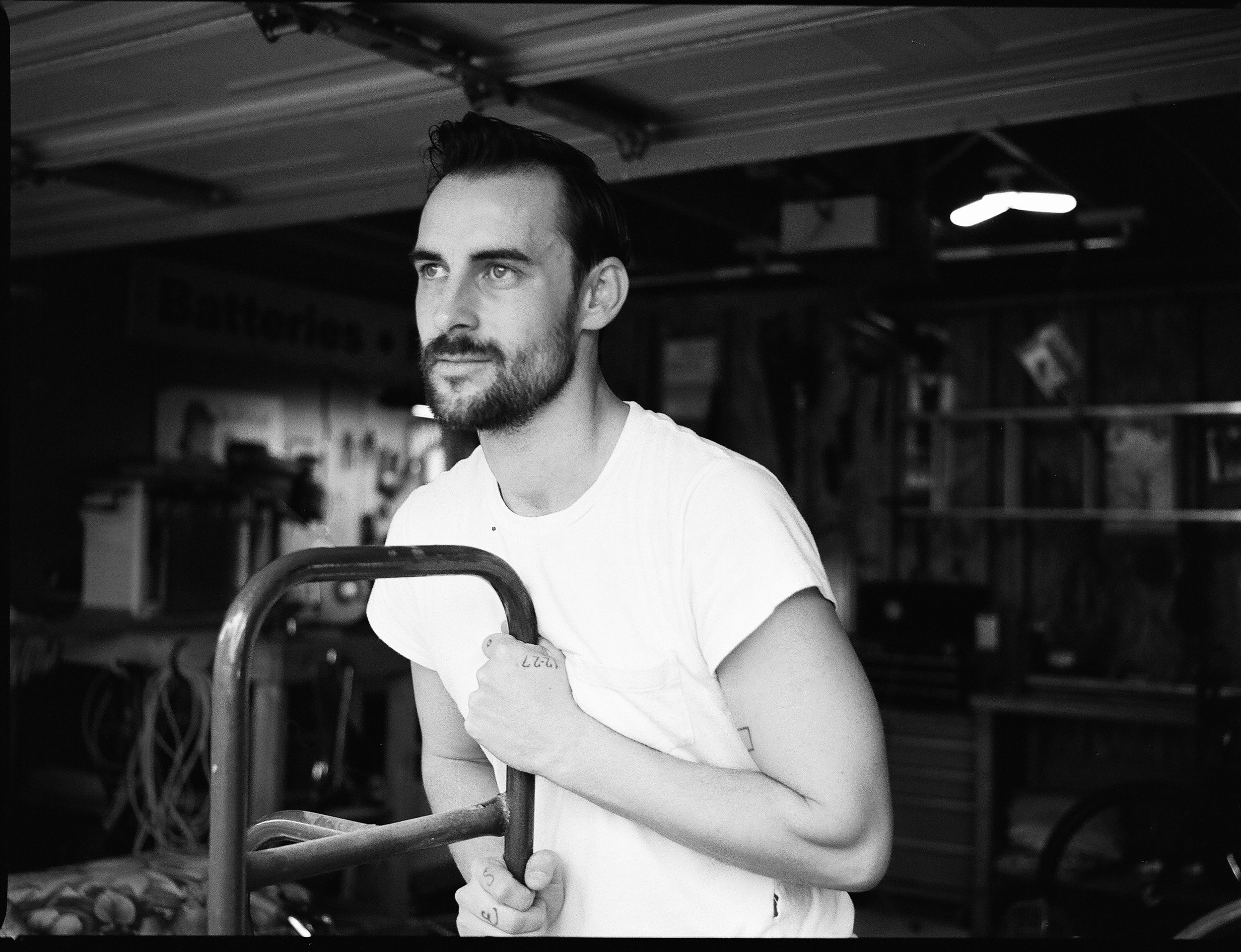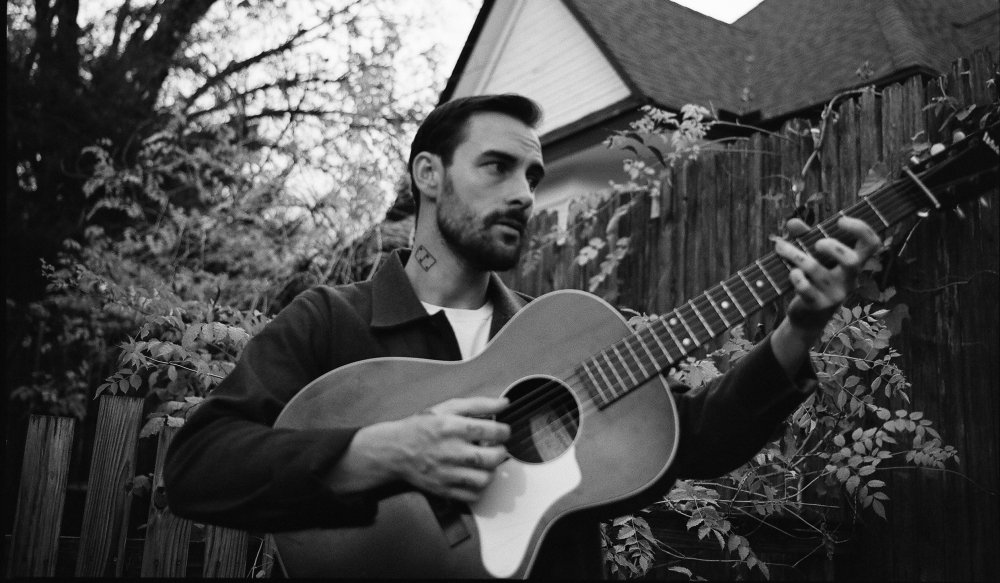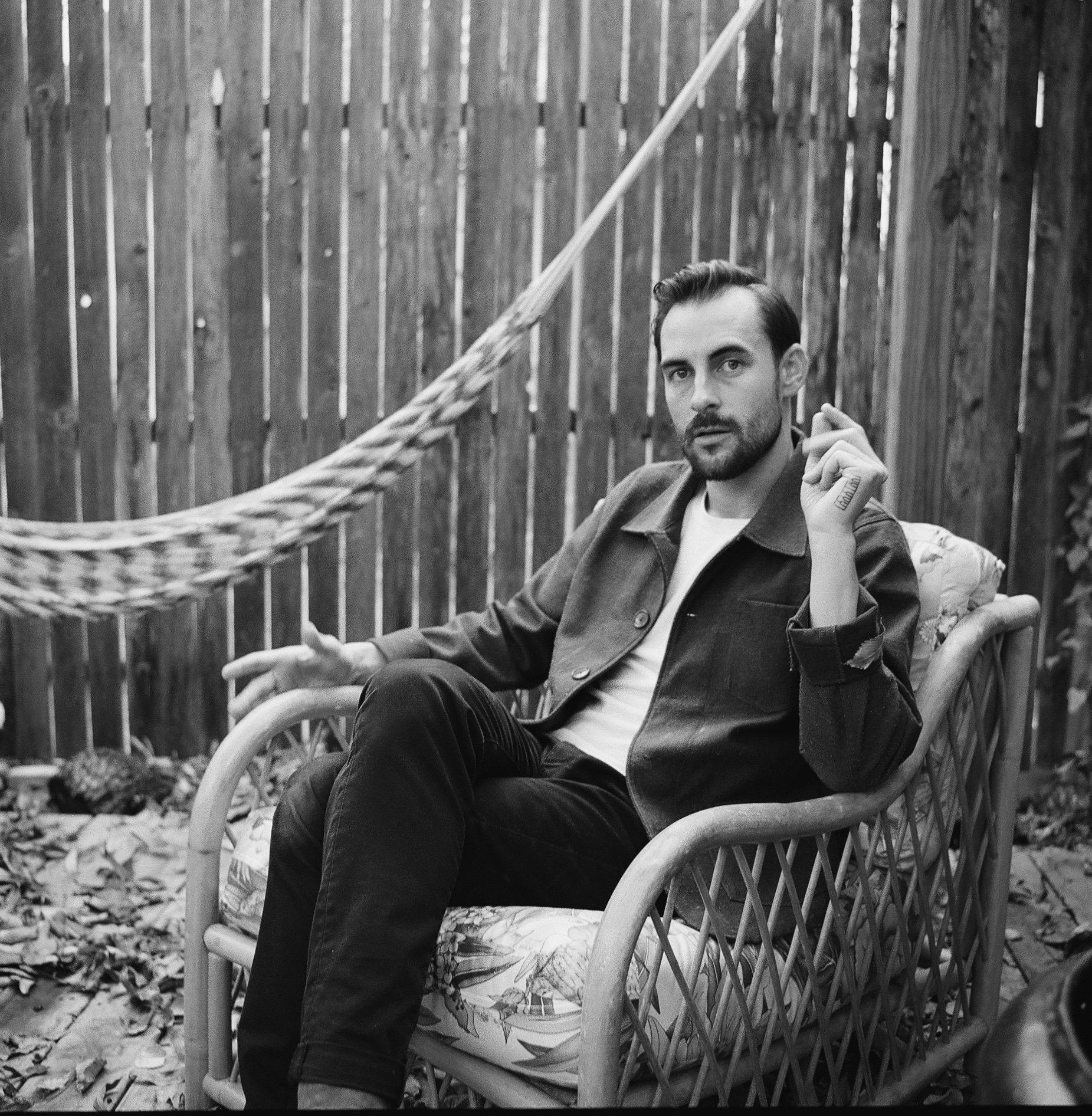Click Image to Download!
Robert Ellis is a free man. That’s not to say he’s without obligation—he’s a husband and father and partner in a top-tier recording studio, after all—but rather, since leaving his record label and management company of more than a decade, he’s liberated himself from commercial expectations and redefined himself on his own, far more honest terms. It would be easy to take such sovereignty as an excuse for indulgence—many an artist has—but Ellis instead goes in precisely the opposite direction with his exquisite new album, Yesterday’s News, embracing a raw minimalism that prizes patience and restraint above all else.
“I’ve spent my entire career trying to make records that I thought would be ‘exciting’ to other people,” Ellis reflects, “but the albums I’ve always been most drawn to are small and gentle and soft. The more I sat with these new songs, the more I realized that their stillness was their strength.”
Recorded live to tape in just two days, Yesterday’s News is as stripped-down as it gets, with Ellis’s delicate, reedy tenor accompanied only by nylon string guitar, upright bass, and the occasional piece of handheld percussion. The arrangements are harmonically sophisticated here, drawing on the open tunings and intricate fingerpicking of English songwriters like Nick Drake or Richard Thompson, and Ellis’s performances are similarly subtle and nuanced, tapping into the bittersweet longing of Chet Baker and the playful poignancy of Bill Evans and Jim Hall. What emerges is a record that’s not quite folk and not quite jazz, a series of intimate, unhurried meditations on growth and maturity, hope and regret, desire and contentment, all delivered by an artist learning to let go and get quiet, to slow down and appreciate the tiny little miracles that make life worth living.
“The record is meant to be experienced on headphones,” Ellis explains. “It’s not an album to put on at a party; it’s something you can listen to alone in the dark, somewhere to lose yourself during those last, hazy moments before you fall asleep.”
While that might seem surprising coming off of Ellis’s most recent release, 2019’s raucous Texas Piano Man, subverting expectations is nothing new for the celebrated songwriter and producer. Born and raised outside Houston, Ellis gained early acclaim for his piercing introspection and absorbing narratives, but his writing was far more layered and complex than the neo-country acts he was often lumped in with. Over the course of five solo albums, he flirted with everything from Paul Simon and John Prine to Elton John and Joni Mitchell, zigging whenever he was expected to zag in a series of sonic and visual transformations that ran the gamut from Redneck Steely Dan to Lone Star Liberace. NPR hailed his “musical daring and impeccable songcraft,” while Rolling Stone praised his “sharp eye for storytelling,” and the New York Times lauded his writing as an emotional “gut punch.”
“With everything I do, there’s always been some kind of a little wink to it,” Ellis says. “I never want anyone to take me too seriously, because I don’t take myself too seriously. At the end of the day, music is a fun way to express yourself, and I feel pretty damn lucky to do it for a living.”
There was a moment a few years back, though, when it felt like that luck might finally be running out. With two kids at home, Ellis was growing less and less interested in the relentless touring that had sustained him for much of his career, and after a decade spent pursuing a carrot that still seemed to be dangling just out of reach, he found himself more disillusioned than ever with the state of the music industry.
“I got out of all my contracts,” Ellis recalls, “but then all of the sudden I was in this very scary space of: ‘What’s going to happen next?’ Even if I didn’t know the answer, I knew that I didn’t want my entire identity to come from chasing other people’s ideas of success and touring myself into the ground anymore.”
Not long after, Ellis got a call from his old friend and frequent collaborator Josh Block, who invited him to move to Fort Worth and partner up at the famed Niles City Sound studio. The gig proved to be a perfect fit for a creatively restless renaissance man like Ellis (in the past few years alone, he’s produced albums for everyone from Jamestown Revival to Zach Williams of the Lone Bellow, scored the true crime podcast Devil Town, and crafted string arrangements for artists like Leon Bridges) and the change of pace led him to begin writing songs at a rate he could barely keep up with. Inspiration often struck early in the morning, before the kids woke up, and the resulting songs reflected that sense of calm and serenity, even as they grappled with the fear and anxiety inherent in 21st Century parenthood.
“There’s something magical that happens really early when you’re still waking up, where words and melodies just sort of fall out of your head,” Ellis explains. “With this album, I stopped fixating on perfection and embraced a lot of real and honest stuff that I would have felt the need to over-think and over-edit in the past.”
That much is obvious from the start on Yesterday’s News, which begins with the warm hiss of two-inch tape beneath Ellis’s tenderly picked guitar. Working out of Niles City with Block, Ellis captured much of the record on a rare, vintage Church MGM U47 microphone (one of roughly only 100 ever made) carefully placed to capture the natural sound of the room as he and bassist Aden Bubeck performed each tune live. There’s a subtle warble to the recordings at times (the heads on the 1970s MCI tape machine were acting up that day), but such idiosyncrasies only add to the dreamy atmospherics, and by the time the vocals come in on album opener “Gene,” it feels as if Ellis is just feet away, singing to you and you alone.
“For most of this album, we didn’t even mic the bass,” Ellis recalls. “The bleed between the vocals and the instruments all just felt so natural and so right that we leaned into it and mixed ourselves live as we played.”
Like much of the record, “Gene” is a tranquil rumination on a flawed and broken world, one that acknowledges the ugliness that surrounds us but still insists on finding the beauty and promise in our shared humanity. The fragile “Wait” reckons with the permanence of loss and the inevitable passage of time, while the eerie “On The Run” searches for meaning and escape in an empty horizon, and the hypnotic “Better Tomorrow” holds on to an impossible faith. “Some people make plans / Some people pray,” Ellis sings. “Just get some sleep / You’ll feel better tomorrow.”
“Even at its saddest, I think this is ultimately an optimistic record,” he reflects. “There’s a sense of catharsis in every song.”
More often than not, that catharsis comes from letting go. “Close your eyes and drift into a dream,” Ellis implores on “Close Your Eyes,” a tender lullaby for his son that might just as easily be sung into the mirror. “You’re closer than it seems if you could just give up control.” The wry title track, meanwhile, rises and falls and drifts like a cloud on the breeze as Ellis channels a washed up singer on some dimly lit stage. “Had my day in the sun / Then gone like the dew,” he sighs. “I’d only begun / Yesterday’s news.”
“There’s an air of resignation to that song,” Ellis explains, “but it also comes with a deep sense of satisfaction. Sometimes it can feel like the world’s passing you by if you’re not constantly out there chasing the brass ring, but in truth, when you quit making concessions and focus on what really matters, the possibilities get bigger, not smaller. The future opens up and anything becomes possible.”
Freedom, after all, isn’t something that’s bestowed upon us; it’s a gift we give ourselves.


